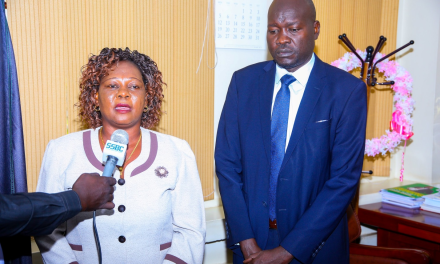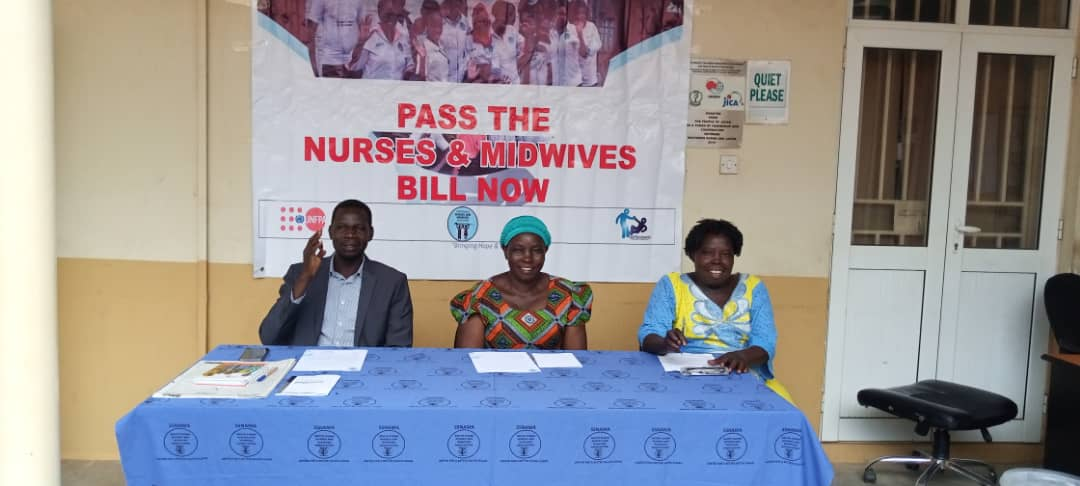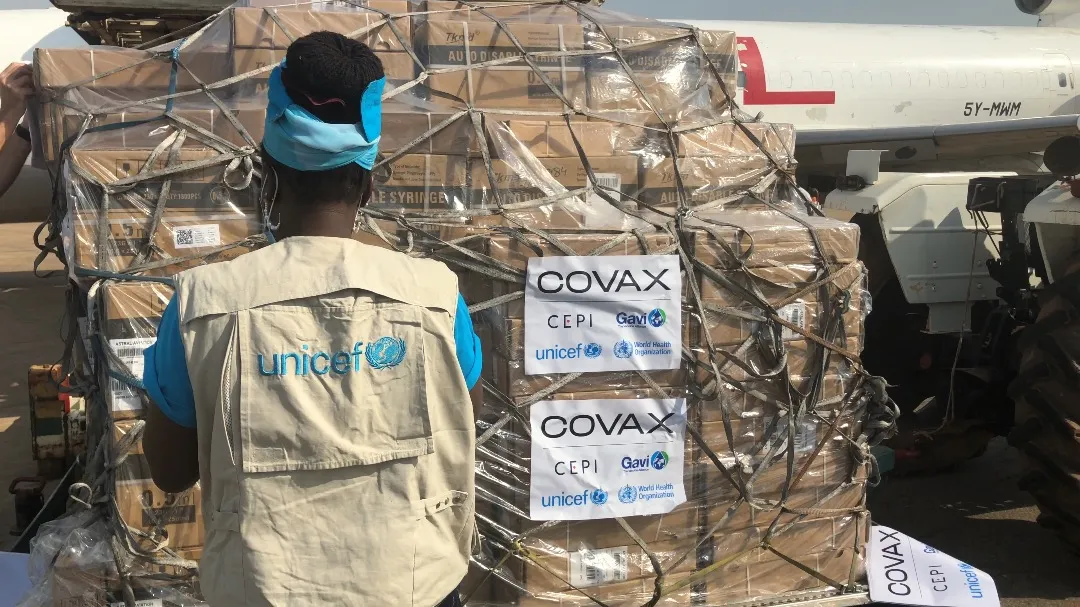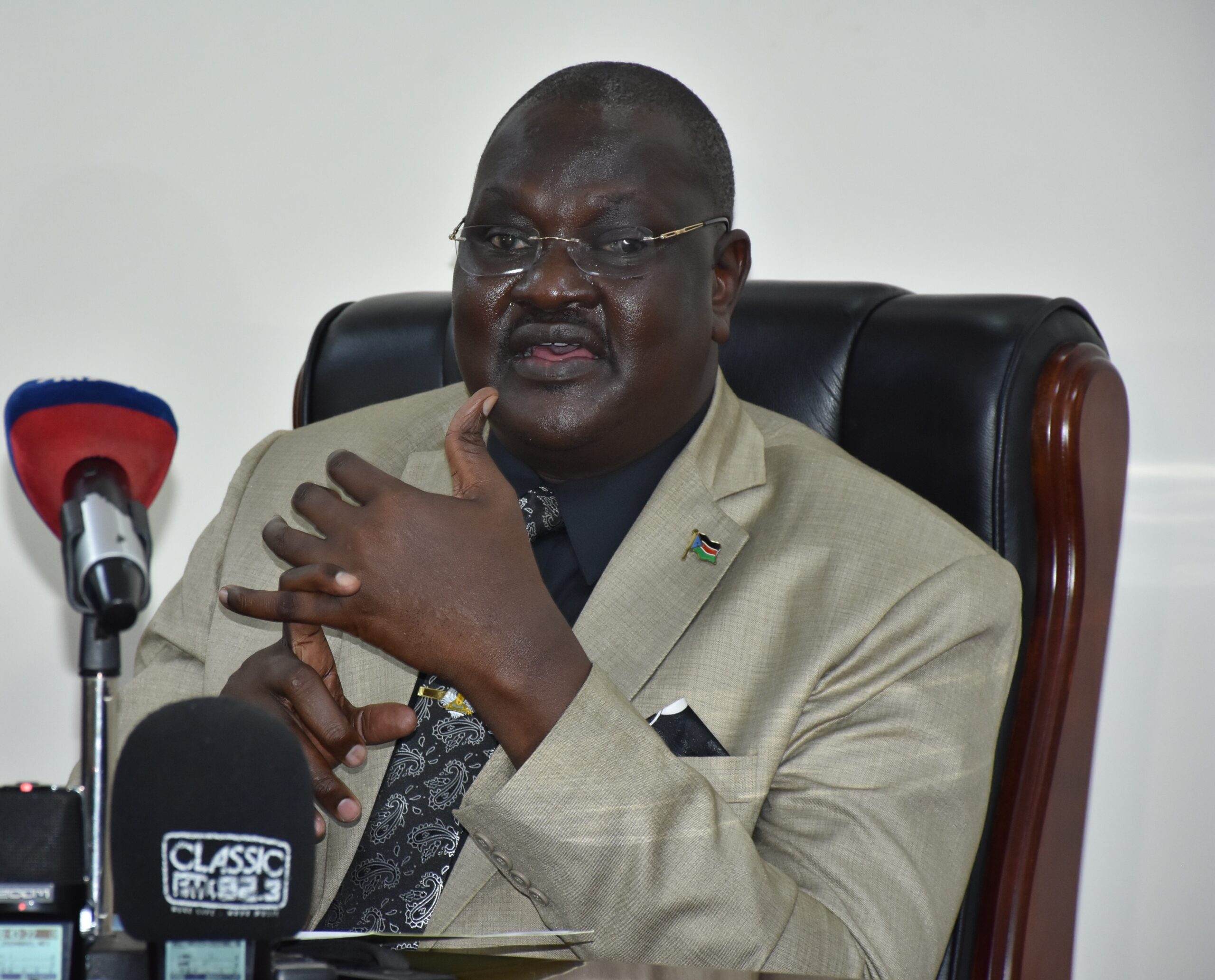
China medical team donates microbiology laboratory to Juba Teaching Hospital

The 11th batch of the China medical team handed over on Thursday modern equipment and reagents for the microbiology laboratory in Juba Teaching Hospital.
Anthony Lupai, Director General of Juba Teaching Hospital said the existing laboratory has been ill-equipped for years, adding that the tools and reagents provided by China medical team will transform testing and accurate diagnosis of sick patients.
“I think the people of South Sudan are very grateful for your effort, services and all that you are giving to the people of South Sudan,” Lupai said during the donation ceremony held in Juba.
However, he expressed concern of replenishing the reagents when they run out.
“If we are confined to only get the reagents from where these tools are produced then it is going to be a burden to us,” Lupai said.
Charles Mazinda, laboratory manager at Juba teaching hospital said the microbiology laboratory equipment will ease testing and treatment of common diseases such as malaria and typhoid that have been difficult to diagnose over the past years.
“It is going to help us bring to an end this occurrence called Malaria-Typhoid because the current tests that we are using is antigen, antibody tests, so we can never confirm that this typhoid that patients are always diagnosed with is really active or it is something present because somebody has been exposed to Salmonella bacteria infection,” Mazinda said.
He added that microbiology laboratory has been one of the key laboratory components that have been missing for a long time in Juba teaching hospital.
“Previously we had microbiology lab but it stopped functioning due to some challenges which we hope will not repeat. With the establishment of the microbiology lab we are now only left with one key component of the lab which histopathology lab so that we can complete the scope of testing for our laboratory,” Mazinda said.

He noted that microbiology testing is very scarce across parts of the country, adding that the few existing laboratories in Juba are very expensive for patients to afford.
“It is going to offer our people the opportunity to get affordable microbiology testing, and to also offer our doctors treatment based on evidence and not on empirical or clinical diagnosis,” Mazinda said.
Mazinda cautioned that for the microbiology lab to work smoothly it requires stable power supply because the equipment could get spoilt in case power is not stable.
“The other challenge is maintenance, we have some equipment in the lab which are already there but due lack of maintenance we are not making use of these equipment now, and it is my special request to the China medical team through the China embassy that let them consider including a biomedical engineer in their medical team not in the next batch but this batch, I will request they consider sending a biomedical engineer because some of the equipment our biomedical engineers are not used to them and some of them the instructions are in Chinese,” he said.
Chen Si, the team leader of the 11th batch of China medical team said South Sudan has a high incidence of infectious diseases, adding that due to limited resources and infrastructure, timely diagnosis and treatment are not always available to patients.
“The establishment of this microbiology laboratory will provide a great assistance to the people of South Sudan in maintaining their health and wellbeing,” he said.
Chen said that the China medical team will do it’s utmost effort to assist Juba teaching hospital in carrying out microbiological pathogen testing and also provide strong support for clinical departments such as infectious disease, internal medicine and ICU.
The donation of the microbiology laboratory is one of the key projects under the China-South Sudan hospital cooperation mechanism.




































